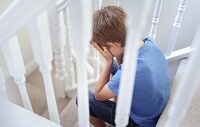Newsletter
Resources to Help Kids Thrive
This newsletter contains a weekly update of content from childmind.org featuring parenting advice, in-depth articles, and the latest thinking on children’s mental health and learning disorders.
Types of Anxiety in Kids
May 21, 2024
Related Resources
Interested in More Content Like This?
Sign up to get weekly resources like this delivered to your inbox.







